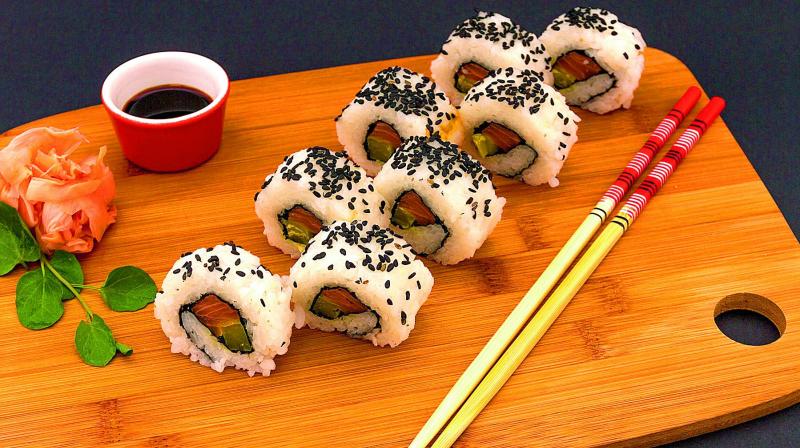Something fishy in your sushi

The humble, delectable sushi, which had off late become a healthy addition to the diet, can now be a cause for concern. A recent study has revealed that eating sushi could lead to a rise in parasitic infections. Especially in summers, it is more of a health hazard. The infection on the rise is called anisakias, and is caused by consuming raw and contaminated seafood. What one could assume is mild stomach pain, could actually be a severe parasitic infection.
 Tripti Gupta, Nutritionist
Tripti Gupta, Nutritionist
Keeping a tab on these symptoms could be helpful. Nutritionist Tripti Gupta says, “Dysentery, vomiting, giddiness, stomach ache, loss of energy, headache, poky and foul smelling stool, and unstable appetite can be the most common symptoms of a parasitic infection. But since people blame acidity for the bloating and pain, cases of parasitic infections have increased and are going undiagnosed.”
 Dr Ravi Sankar Erukulapati, Senior Endocrinologist, Apollo Hospitals.
Dr Ravi Sankar Erukulapati, Senior Endocrinologist, Apollo Hospitals.
However, sushi and other raw meat aren’t the only culprits. Dr Ravi Sankar Erukulapati, Senior Endocrinologist, Apollo Hospitals, opines, “Sushi is generally made up of raw protein, which can carry parasites. When a meat is consumed uncooked, the chances of food infection increases as raw food is an ideal setting for breeding parasites due to the moisture. One has to cook proteins to a certain temperature to kill all sorts of bacteria. Even raw vegetables are susceptible to parasitic growth. But, carbohydrates have a lesser chance to be a breeding ground than proteins.”
 Raghu Ramaswami, Executive Chef, Fusion 9
Raghu Ramaswami, Executive Chef, Fusion 9
Raghu Ramaswami, Executive Chef, Fusion 9, gives an insight of what he thinks of this issue. “Uncooked proteins are easy to get spoiled if not preserved properly. So, dishes like sushi and sashimi may be bad for health if not prepped right. In our restaurant, we use cooked meat for sushi even though it’s not the authentic variety, to be on the safer side. Many other restaurants in India do the same to avoid any health hazards.”
Though there are many anti-parasital drugs available over the counter to cure the infection, basic steps can help, reveals Tripti. “Salt and vinegar are the best natural disinfectants. Frequent eaters of sushi should combine a strong shot of lime juice with cayenne pepper and pink salt, post their indulgence, followed by an oil infused tea,” she says.
—With inputs from Reshmi Chakravorty

